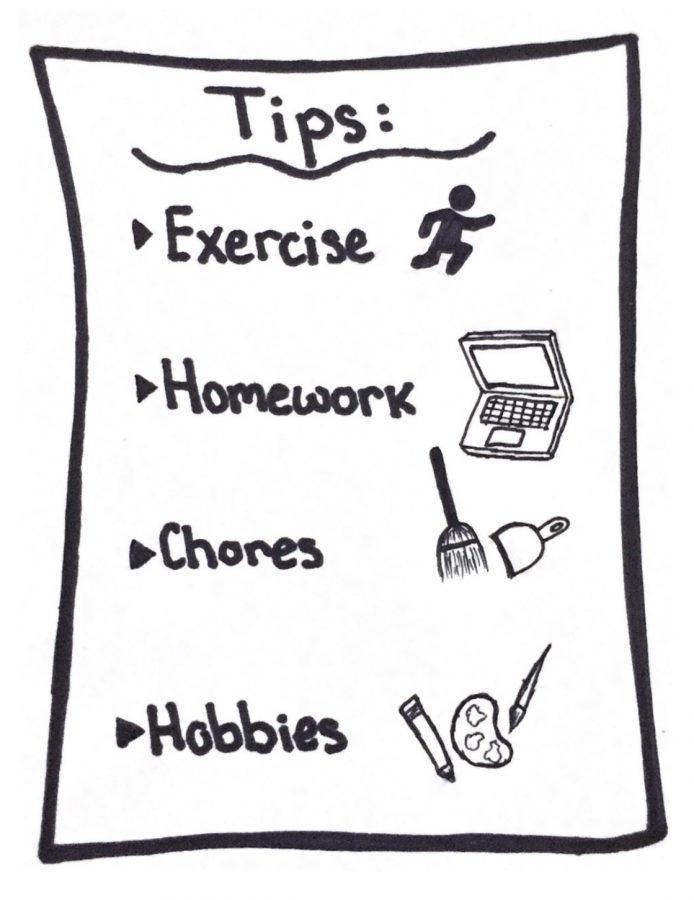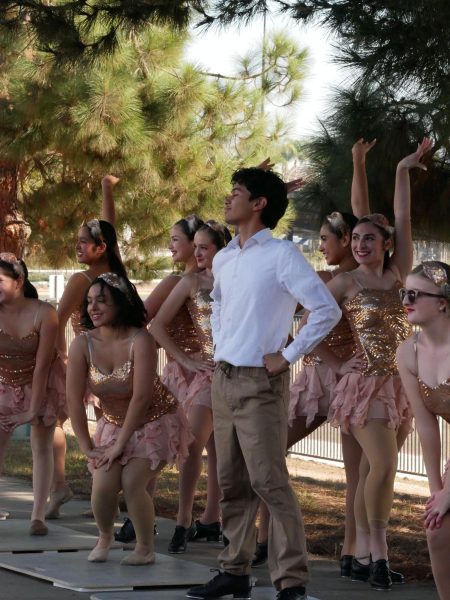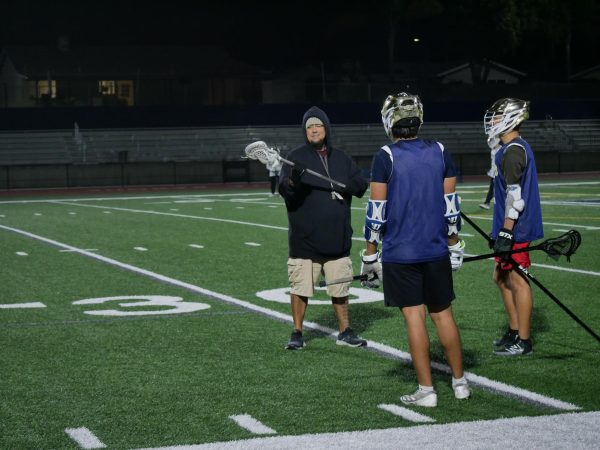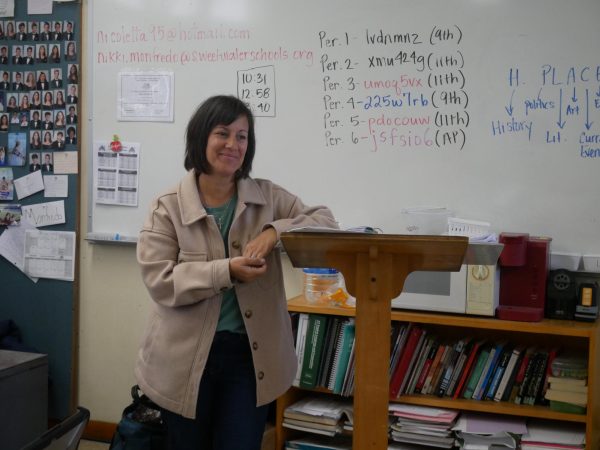Exploring student productivity during quarantine
Under quarantine, Bonita Vista High (BVH) students have been forced to adapt to a much different schedule compared to their typical school week. Spring break started one week earlier than expected and was then later extended by two more weeks to accommodate teacher training for distance learning. On top of that, distance learning itself has been a very new experience for students.
With distance learning, the school day is now from 10:00 a.m. to 1:30 p.m. — students start much later and end earlier than they did on campus. Amidst uncertain and unprecedented circumstances, it is likely that student productivity has been impacted, whether it be negatively or positively. By receiving assignments on Monday and working throughout the week, the ability for students to get their work done is largely based on independent decision-making.
In a sense, the word “productivity” is very broad; it can be applied to basically any situation involving steps and a goal, including student activity during quarantine. Overall, productivity tends to be dynamic because it is largely shaped by one’s circumstances.
“Productivity generally refers to the ability of an individual, team or organization to work efficiently in order to maximize output,” Psychology Today said. “An individual’s productivity hinges on mental energy and a sense of internal and external motivation.”
Within the confines of one’s home, student productivity takes several forms. For junior Joana Peralta, her routine encompasses everything from schoolwork to engaging with hobbies.
“[Being productive for me looks like] going for a walk outside, working on my drawings and paintings, working on homework, watching quality shows and [watching] enjoyable Youtube videos,” Peralta said.
According to sophomore Samantha Bianes, productivity involves dedication; she designates a desk at home where she gets her work done and avoids distraction. With distance learning, Bianes spends, on average, about seven hours on schoolwork a day, with the rest of the day spent on other extracurricular activities.
“When I hear the word productivity, I first think of getting things done effectively and efficiently, whether it be physical or mental. In addition, I also think of a schedule,” Bianes said.
With more leisure time and less strict deadlines, levels of productivity among students have largely varied. While Joana Peralta has expressed how being productive “hasn’t been too easy or too difficult,” she does report certain difficulties with becoming motivated.
“I haven’t been well motivated, I do schoolwork because I have to. This is emphasized when teachers are strict and if my grades in one class could easily drop if I miss one assignment,” Peralta said.
Despite these difficulties, the fact that less time is wasted traveling to and from campus may cause students to feel more productive. For example, Bianes explains how distance learning has actually offered her a sense of motivation. She admits “it has been hard to keep my focus,” but explains how the thought of how her future makes her want to continue to grow.
“It has been easier [to be productive] since I have no place to go. [I’m] always at home with things to do that keep me busy,” Bianes said.
No matter what a student has been doing during distance learning, Peralta feels there is always room for them to be more productive. In order to accomplish one’s goals effectively, Peralta highlights how it is also important to maintain good organization, which makes it easier to tackle large amounts of tasks. In her experience, having a place to record what has to be done each day makes it easier to be productive.
“I wrote down my schedule and work for each class on my planner. If the work in a class is intensive I reserve a whole afternoon for it. I also usually save assignments due later in the week for last,” Peralta said. “I recommend the app ‘To Do’ by Microsoft, which has a nice and well-organized user experience and user interface, and doesn’t lag as much as ‘Reminders’ on iPhone.”
Ilya Pozin, a contributor for Forbes Magazine furthers by stating that being productive does not mean staying up late nights and overexerting oneself to study. It is actually the opposite — not having a break or enough rest will actually decrease one’s motivation to be productive.
“The ache in your brain after several long hours of work should be your signal to take a break. Since your brain has used up its glucose, give yourself a moment to refresh by going for a walk, grabbing lunch or a snack or just meditating,” Pozin said.
In reality, it’s impossible to change the amount of time one has, but it is very possible for students to manage that time effectively. Through smart decision-making, all students have the capability to train themselves to be more productive.
“If you have five pages, do a page a day; do one subject for one hour then have 10-minute breaks in between. You don’t have to do school every hour [of the day] — you could do one hour of math then one hour of art,” Bianes said.
I am a junior at Bonita Vista High, and a second year staff member on the Crusader. I love being able to meet new people, and having conversations with...

As a senior attending Bonita Vista High, this is my second year on staff. Personally, I find Newspaper compelling not solely due to its devotion towards...

Hi! I’m a junior at BVH and this is my second year on the Crusader staff. My position this year is staff artist, which means I get to make graphics and...





